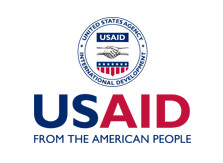Success Story
Bridging gaps: Local government replicates best practices to improve quality of education in Agege
Ranked as one of the top ten most populous countries, Nigeria's over 140 million citizens compete for severely limited resources and services for health and education. Where they do exist, public infrastructure and services are of poor quality and are grossly inadequate. In addition, annual government allocation to health and education services trail those of other sectors of the economy making substantial development almost impossible. As a result, several government officials count on external funding from the United States Agency for International Development (USAID) and other donors to pay for and provide public sector services. But even these funds are limited.
The Community Participation for Action in the Social Sector (COMPASS) project is however bridging the gap by encouraging governments at various levels to replicate interventions and best practices at their own expense. Through several levels of advocacy meetings and discussions with education policy makers and administrators, the project highlights the importance of continuing education for teachers and the difference they could make on learning achievements.
Nigerian teachers are rarely given the opportunity to update their skills after their teacher training, making it difficult to keep up with teaching trends. Through its basic education program, COMPASS is training teachers in Lagos, Kano and Nasarawa States on modern teaching methods to make them more effective teachers. By establishing an improved and more conducive learning environment, pupil achievement increases, especially in literacy and numeracy, and girls' enrollment increases too.
To help the government replicate the trainings, the project provides facilitators and training materials while the local government covers all other expenses. Agege Education Secretary, Mrs. Elizabeth Olajumoke Akanni, recently explored opportunities for replicating COMPASS interventions in schools in her Local Government Area. Following several advocacy meetings and witnessing improvements in educational outcomes in COMPASS-supported Local Government Areas in Lagos State, she said, “I was quite disappointed when Agege was not selected as one of the project's target areas.” Akanni continued, “I however followed the project closely and was delighted to learn about replication possibilities.”
|
“More than 20,000 teachers from 1,400 public primary and Islamiyya (religious) schools in Lagos, Kano and Nasarawa States are learning better ways of teaching reading and math skills through the COMPASS teacher training program." |
The training in Agege was held in April 2008 for 120 teachers, head teachers, and local government education officials. Participants were equipped with student-centered teaching methodologies and developed plans for training other colleagues in their schools. On their own accord, head teachers from each school procured radios from their monthly budget allocations for airing the Interactive Radio Instruction broadcasts. According to COMPASS State Education Network Manager, Nurudeen Lawal, “It is really interesting and rewarding to see project initiatives replicated and scaled up at the grassroots level by the Local Government Education Authority.”
The initiative in Agege is not the first. There are several other similar initiatives in other parts of Lagos, Kano and Nasarawa States where local governments, philanthropists, and community members are using COMPASS' strategies and momentum to improve the quality and utilization of basic education and health services.
With the government's increasing participation at different levels in scaling up proven strategies and best practices, such as the COMPASS basic education package, the Nigerian basic education system will be positioned to meet the Millennium Development Goals of achieving education for all through the Universal Basic Education (UBE) Program by 2015.
More than 20,000 teachers from 1,400 public primary and Islamiyya (religious) schools in Lagos, Kano and Nasarawa States are learning better ways of teaching reading and math skills through the COMPASS teacher training program. Enthusiastic government authorities are now investing local funds to expand the trainings to more teachers outside the project.
|
